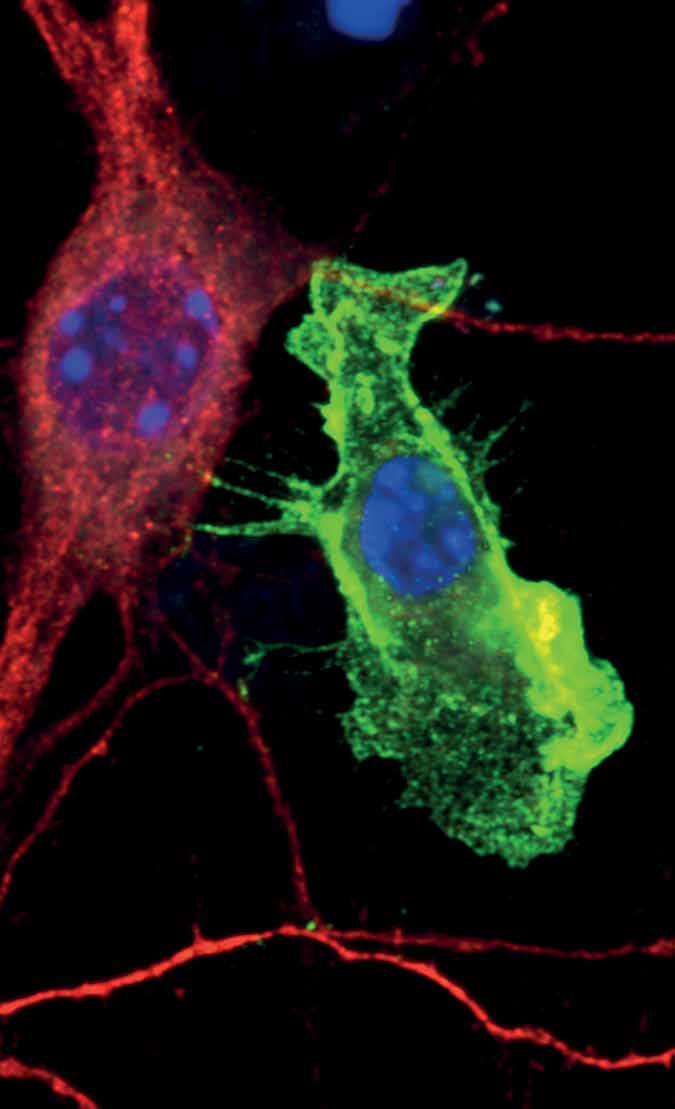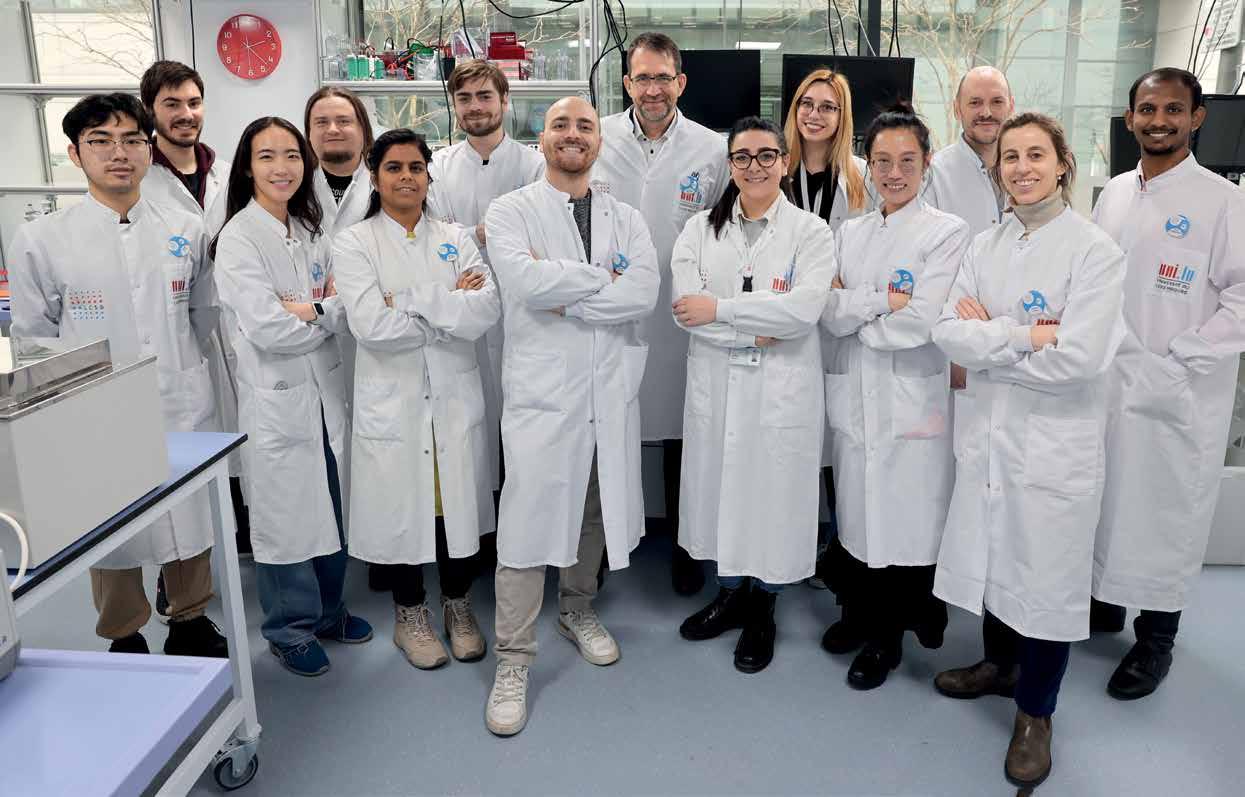
2 minute read
Exploring neuroinflammation and its role in Alzheimer’s disease
The World Health Organisation has identified dementia as a major health issue. Approximately two-thirds of all dementia patients suffer from Alzheimer’s disease. To date, the mechanisms responsible for this neurodegenerative disorder remain unclear and neither preventive nor disease-modifying therapies exist.
At the LCSB, the new research group led by Prof. Michael Heneka studies the underlying mechanisms of Alzheimer’s disease, in particular the role of the immune system and its dysregulation.
Advertisement
With an expected increase from currently 55 million cases to about 150 million in 2050, dementia will significantly affect healthcare systems worldwide. Alzheimer’s disease is the most common cause of dementia. This neurodegenerative disorder leads to memory dysfunction, behavioural disturbances and loss of all higher cognitive functions. “It has become increasingly clear that Alzheimer’s is, in fact, not a disease of the elderly but starts much earlier in life,” explains Michael Heneka, director of the LCSB and head of the Neuroinflammation group. “Understanding its origins is therefore key to being able to detect and treat it before the devastating effects on the brain fully appear.”
As a board-certified neurologist and clinician-scientist, Heneka has extensive experience in studying neurodegenerative diseases at experimental, preclinical and clinical levels. With the help of his group at the LCSB, he is now looking at these diseases through the lens of immune mechanisms in the central nervous system. Active since May 2022 and steadily growing, the new team focuses on early immune processes to better understand neuroinflammation, a common hallmark of neurodegenerative diseases.
At the end of the year, the Luxembourg National Research Fund (FNR) has awarded an FNR PEARL Chair to Michael Heneka for a research project called MINIALZ. With this new project, endowed with 3.9 million euros, the Neuroinflammation group will further disentangle the role of genetic and environmental influences, such as diet and lifestyle, on the onset and progression of Alzheimer’s disease. “We will study the interaction of immune cells and neurons in the brain, both in animal models and in cell cultures directly derived from blood samples given by patients,” details Michael Heneka. “Our aim is to better understand what role the brain immune cells play in keeping neurons healthy and what happens if their interactions are altered.”
The project will capitalise on the recent identification of a new mechanism by Michael Heneka’s team: microglia, the immune cells of the brain, form connections with neighbouring neurons. These so-called tunnelling nanotubes are used to free the nerve cells from pathological proteins, ensuring their function and survival. Preliminary results suggest that the mechanisms involved are defective in microglia carrying mutations associated with Alzheimer’s disease, placing this network of nanotubes at the core of neurodegeneration. This brand-new field of study is promising, opening new avenues for several brain diseases and eliciting a lot of interest in the international scientific community.

By studying the underlying mechanisms of Alzheimer’s disease at the molecular level, MINIALZ will give important indications for earlier diagnosis and potential treatment options. “We want to coordinate fundamental research on dementia in Luxembourg with translational and clinical research efforts,” says Michael Heneka. “Our results should help to develop new biomarkers and therapeutic measures, and support Luxembourg’s ambition to provide excellent healthcare to dementia patients.” ¢










